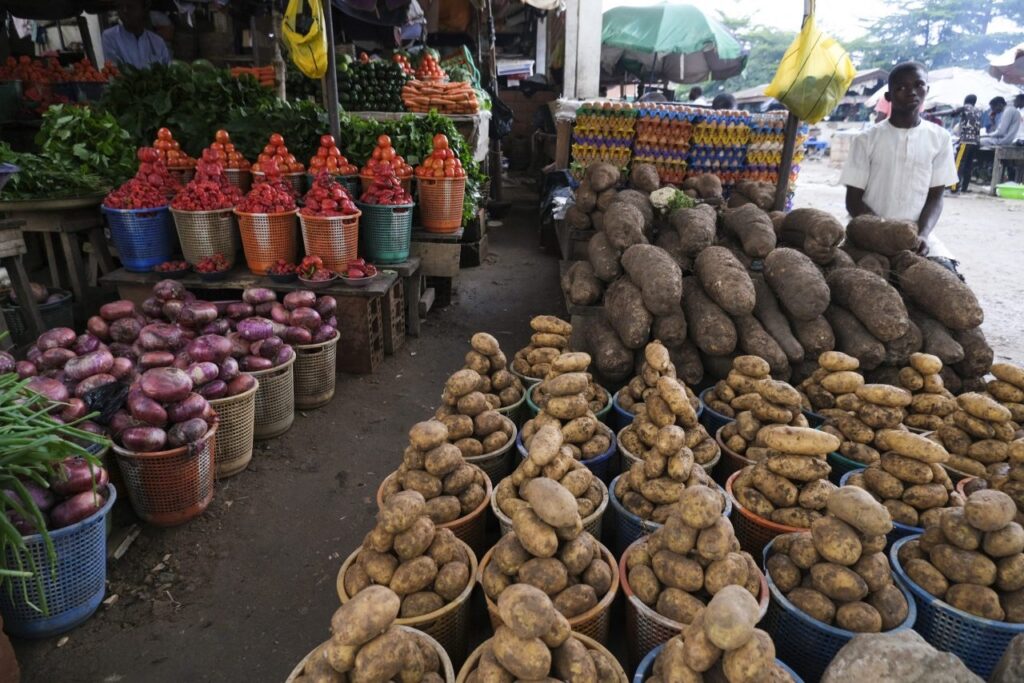Read in
A trader display farm produce at Wuse Market, Abuja, Nigeria. (Photo by Kola Sulaimon / AFP)
Sir: Resource persons at the just-concluded National Conference on Agricultural Journalism (NCAJ) have stressed the importance of agriculture in the attainment of food security, promotion of a safe environment, and engendering national development. The theme of the conference was, “Agricultural Journalism in Nigeria: Challenges and Prospects.”
In a thought-provoking presentation at the conference, Mr. Obinna Chukwuezie, emphasised the importance of diligent reporting in the field of agricultural journalism. In his paper, titled ‘Mainstreaming Value Chain Approach to #AgReporting’, Chukwuezie shed light on the often-overlooked agro-value chains and their significance to the industry.
The JCM Centre founder further encouraged journalists to engage farmers, researchers, policymakers, and industry experts to gain a comprehensive understanding of the issues affecting agriculture.
A seasoned agricultural communication expert with over 47 years of experience, Chief Godson Ononiwu adduced reasons why agricultural news rarely make it to the front pages of Nigerian newspapers, as panels of experts, journalists, editors, and academia, convened at the event, discussed reasons behind this issue and the implications for the agriculture sector.
The national conference served as a platform for open dialogue on the challenges surrounding the coverage of agriculture reports in Nigeria.
Participants also voiced out pressing concerns that, despite the presence of agriculture desks in some newspapers and media outlets, there is no single “go-to-agric media house” in Nigeria.
The deliberations unearthed several critical factors contributing to the under-representation of agriculture reports, as follows poor titles and headlines, where it was pointed out that agriculture stories often receive uninspiring and unattractive headlines.
They argued that a catchy and engaging title is crucial for grabbing readers’ attention and enticing them to delve into agricultural issues. Uncreative reporting styles such that cumbersome, redundant and monotonous reporting in agric beats often leads to dry story telling as pointed out by Ugonma Cokey in her engaging presentation on ‘Coverage of Agro-Ecology for a Safe and Healthy Environment.’
Similarly, Ivor Price and Kobus Lowrens of the Food for Mzasi Group in South Africa, in their presentation during the special technical session, titled ‘Utilising Technology to Elevate Agricultural Journalism: A Case Study from Food for Mzansi, South Africa,’ emphasised that there is need for journalists to write specifically for target audience and package their reports for easy digest by their readers.
Meanwhile, Dr. Ijeoma Chibogwu of the Faculty of Veterinary Medicine, University of Abuja, stressed the need for journalists to do more than surface-level news stories and uncover root cause of failed policies in the sector, for example. They encouraged journalists to strive to tell compelling stories, seek diverse sources, provide context and adapt to the evolving media landscape to maintain the relevance and impact of their reporting.
Dr. Adewale Kupoluyi is the chairman, National Conference Planning Committee.



